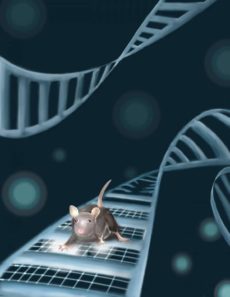If your military family has a family member or child with special needs, there are numerous resources, services and programs available to help you. But where do you start? Here are some top resources. The Exceptional Family Member Program Sometimes half the battle of managing your family member’s care is knowing what resources and services are available and how to access them. The Exceptional Family Member Program, or EFMP, is a great place to begin. […]
Category: Special Needs
Study Looks at Boys and Girls with Autism Who Falsely Screen Negative at an Early Age
A study in 2018 issue of Pediatrics looks at why some children receive negative results on early autism screenings, but then go on to later receive a diagnosis of autism. Authors of “Clinical Features of Children with Autism Who Passed 18-Month Screening” examined the developmental and temperamental profiles of more than 68,000 18-month-old Norwegian infants, all of whom received a negative result on a parent-directed questionnaire designed to screen for autism. The authors found that […]
Myths & Facts about Autism Spectrum Disorder
There are a lot of misconceptions circulating about individuals with autism spectrum disorder (ASD). In order to fully meet the needs of students with ASD and support them in inclusive classrooms, it is important to have accurate information about their strengths and challenges. This post clarifies some common myths about autism spectrum disorder and offers resources for further information. MYTH: Everyone with autism is either non-verbal or a savant. FACT: ASD is a neurodevelopmental disorder […]
Epilepsy Therapy Screening Program (ETSP)
Overview The mission of the NINDS Epilepsy Therapy Screening Program (ETSP) is to encourage and facilitate the discovery of new therapeutic agents for the treatment of epilepsy disorders. The program provides opportunities for researchers from academia and industry in the U.S. and abroad to submit compounds for screening in a battery of well-established rodent seizure models. These tests are performed at a contract facility based at the University of Utah on a blinded and confidential […]
Autism Mutations Make the Brain Less Flexible
Summary: Study sheds light on how SETD5, a gene associated with ASD, alters behavior and may lead to less flexibility in the brain. Source: Institute of Science and Technology Austria. About 1% of patients diagnosed with autism spectrum disorder and intellectual disability have a mutation in a gene called SETD5. Scientists have now discovered what happens on a molecular level when the gene is mutated in mice, and how this changes the mice’s behavior. This […]





